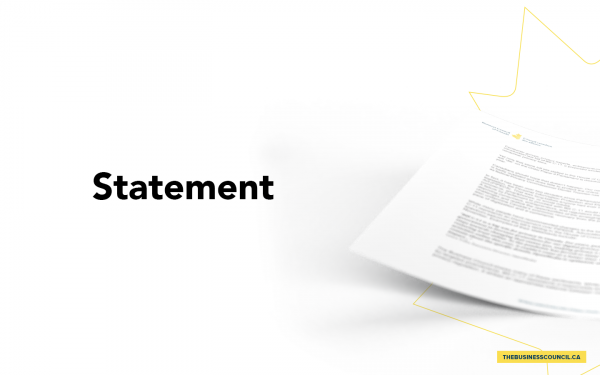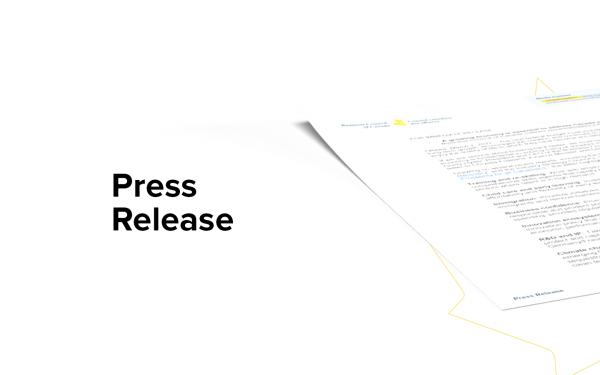The Three P’s of Economic Security
As published on LinkedIn
In June 2022, “Ashley Wilson” wasted little time expressing her alarm over the discovery of a new rare earth deposit in northern Saskatchewan. “How to ensure the health of workers, firmly resist,” Wilson vented on Twitter.
Another Twitter user – “Farrah” – came to a similar conclusion: “It’s not exciting, our lakes will be destroyed.”
Over on Facebook, “Brown Emily” and “Gonzales Bonnie” were equally appalled, respectively referring to the discovery as “terrible” and “terrifying.”
There was just one problem: none of the four social media users were real people. In fact, each was a “bot,” just a few of the thousands of fake accounts used to carry out a coordinated disinformation campaign.
The plan of attack was clear: whip up local opposition against the project, force the stoppage of the miner’s operations, and undermine a sector essential to Canadians’ security and prosperity.
Economic warfare is as old as history. But in an era of renewed geopolitical competition, where supply chains, infrastructure networks, and technological know-how increasingly determine strategic advantage, we’re seeing a newer, harder-hitting style of economic war. One where countries deploy both time-tested armaments, such as trade embargos, as well as modern tools, such as cyberattacks, to reshape the international order to their liking.
Countries around the world have turned to economic combat because disrupting their adversaries’ economies has proven to be a fairly successful means of achieving their objectives without risking significant bloodshed or treasure.
By either depriving, or threatening to deprive, a country of the fruits of its commerce, states have been able to influence the actions of their rivals. If a target country refuses to give in, degrading their industrial capacity has the added benefit of weakening their ability to fight back should a conventional conflict break out.
Canada has been late to recognize this changing face of international relations. Successive federal governments have overlooked, taken for granted, or simply ignored the fact that our national security is now inescapably linked to our economic security.
This should concern all Canadians.
Efforts to degrade our commercial capabilities have resulted in serious casualties. This includes the loss of well-paying jobs; forgone tax revenues to fund essential public services, like health care and affordable housing; as well as lost leadership in industries vital to our country’s military strength.
Thankfully, Ottawa has begun to acknowledge the threat by adopting corrective measures advocated for by the business community. These include a commitment to publish a national security strategy that will prioritize economic security, as well as the enactment of legislation authorizing Canada’s security service to share intelligence with businesses in our rival’s crosshairs.
While welcome steps forward, Canada’s new federal government will need to implement far deeper reforms if it is effectively safeguard Canadians in an era of economic war.
These measures should take the form of the “Three P’s”:
- Protect: Ottawa must revamp its economic security architecture – the latticework of interconnected laws, policies, and programs that enable the country to disrupt economic threats. A priority must be the creation of a new federal law enforcement agency focused narrowly on national security policing, including responding to economic-related crimes such as sabotage and espionage. Because of the burden of contract policing, the Royal Canadian Mounted Police isn’t up to the task.
- Promote: In an era of economic warfare, a country without domestic ownership and control over advanced industrial capabilities is like a country without a military. Ottawa must therefore strengthen Canada’s economic might by adopting an industrial policy that increases productivity and innovation within strategically important sectors, such as advanced manufacturing and information technology. This will enhance Canada’s ability to influence global economic rules; increase Canada’s ability to act autonomously on the world stage free from economic coercion; and pay for increased government investments in our security, such as a more capable intelligence community. To catalyze change, a priority must be the creation a challenge-based innovation agency modeled on the U.S. Defense Advanced Research Projects Agency.
- Pushback: Ottawa must follow both friend and foe and turn to economic statecraft as a tool for shaping international affairs. Canada shouldn’t engage in activities, such as economic espionage, that erode international economic norms. Ottawa should nevertheless develop a strategy and toolkit to strategically wield Canada’s economic power to influence foreign states’ behavior, including deterring countries from threatening us economically. To be effective, Canada’s toolkit must include both “carrots”, including market access, as well as “sticks”, such as export controls.
The government’s embrace of the Three P’s won’t be the end of the road. The next, and far more challenging, step is ensuring their effective implementation.
Too often new economic security initiatives are announced, only for implementation to move slowly, or fail to materialize all together.
The reason: Ottawa’s failure to engage business leaders – the soldiers on the frontline whose buy-in is needed if government is to effectively contest a battlefield that lies outside its direct knowledge and control.
To conscript Corporate Canada, the government must create new mechanisms for partnership. Chief among them must be an economic security division within the Privy Council Office to develop and execute economic security policies in collaboration with industry.
Canada’s business leaders are ready to step up and partner with government. In fact, they’re already investing billions each year to keep Canadians safe from growing economic security threats.
We hope the government reciprocates. Because in a world at economic war, where businesses are both the objects and instruments of state policy, the government’s ability to protect Canadians will largely depend on its ability to partner industry.









